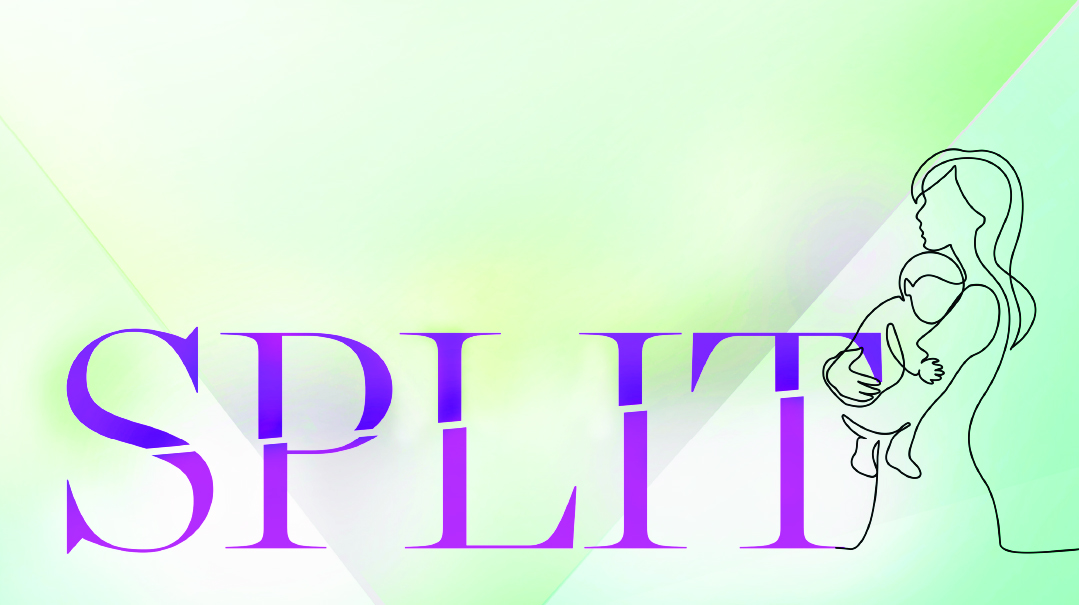Split: Chapter 7
| February 17, 2021With a girl, I worried that the scar would play into her sense of beauty, her sense of self. What would happen when it came time for shidduchim?

Akiva had grown into an active, exuberant toddler. It was one of those days when our Israeli apartment seemed too small to contain his energy. I scooped him into his stroller and headed to the park outside our building.
When we got there, Akiva ran to the swing set and began peddling back and forth. I settled heavily on a nearby bench, gingerly rubbing my sore back. As I watched Akiva soar on the swing, my thoughts turned, as they so often did, to the twins I was carrying. I wondered about my daughter with the cleft — would she feel pretty? Would she grow up feeling confident?
When I was expecting Akiva, the doctors had initially suspected a full cleft palate, not just a cleft lip, and they were wrong. With our daughter, the doctors suspected a full cleft palate — and they were right. The testing and imaging revealed that her cleft was going to be a lot worse than his was.
But it wasn’t only that the condition of the cleft was more complex. This time, I was having a little girl. And girls wear scars differently than boys. For Akiva, it’s just a small mark on his face. With a girl, I worried that the scar would play into her sense of beauty, her sense of self. What would happen when it came time for shidduchim?
“Mooommmy!”
I started, my reverie broken, then turned and smiled at the little girl behind me. Her voice had a slight pitch to it, almost nasal-sounding, and something about it reminded me of my Akiva’s. That kid has a cleft too, I thought. Sure enough, when I stared for a minute, I saw the white scar cutting across the top of her mouth.
I helped Akiva off the swing and we walked over to the tall woman sitting on the bench. It seemed like she was the girl’s mother.
“I noticed that you also have a child with a cleft,” I told her, nodding toward my son.
“Yes, I do,” she said.
I waited for her to continue. Nothing.
“I’m expecting another child who also has a cleft. It’s a girl this time.”
“Oh?”
I wasn’t sure if the woman would be willing to speak with me, but I continued. “I’m worried that it will be different with a girl. All the things like looks and beauty — they play a much bigger role.” She nodded. “How did you handle it when your daughter was born?”
“It was hard.” the mother told me, looking away. A few feet away, her adorable little girl slid down the slide, her beautiful smiling lighting up her face as her head was thrown back in laughter. Her mother caught my eye and continued speaking.
“At first I barely went outside with her. I camped out at my mother’s house and sent my husband out for errands. I was embarrassed for people to see her before her surgery.” The woman told me more — how she’d hidden her daughter’s face with a blanket. I nodded, remembering how I’d done that at first when Akiva was born, and then how I’d flung off his blanket, resolved to let visitors see his entire face.
The woman continued talking — it was as if I’d unlocked a dam, and now all of her pent-up emotions tumbled out. When she held her baby, she clutched her to her chest, making sure no one could see her face. Every time she took her baby on a bus with her, she felt strangers’ eyes boring into her. She barely took any photos.
My heart broke again and again as I listened. I understood why she never took photos — her daughter would never have to know what she looked like before. But when I imagined my daughter looking through our albums, seeking her newborn photos, I shuddered. Would she grow up thinking that her Abba and I were too ashamed to remember her as she’d been born?
“We’re going to take millions of photos,” I told my husband when I repeated the conversation that night. My daughter may have to see them and accept how different she looked pre-surgery, but she’d also see them and know that her parents loved her — and thought she was beautiful — just as she was.
to be continued…
(Originally featured in Family First, Issue 731)
Oops! We could not locate your form.


